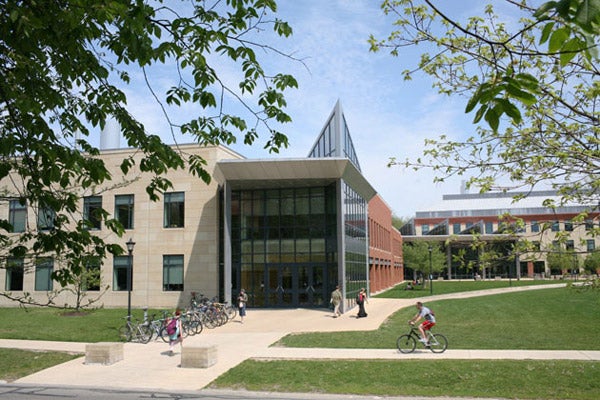In just a few weeks, several hundred students will converge on the Oberlin College campus to begin their formal years of collegiate study. Some will be veterans of the college experience; others, newbies.
I've noticed, however, that the newbies will have already learned a lot about this place by the time they arrive. Websites and colorful brochures aside, many have gotten to know Oberlin thanks largely to social media.
Many from the Class of 2015, our incoming first-year students, have congregated on the college's Facebook site. Students from California, Texas, and Arizona have connected with those from Illinois, New York, and Pennsylvania. Class members from India, Nigeria, and Columbia have been able to learn about climate, food, and music from those who are lifelong northeast Ohioans.
Everybody asks a lot of questions:
Should I bring a car?
What's the size of my room?
Who's staying in Spanish House?
Did anyone sign up for the seminar on Sex, Gender, and Power?
I'm going to the Day of Service. Anyone else sign up? What do we do?
Can I sign up for classes during orientation or should I do it before?
Is anyone arriving early? When?
And they get things done. They've seen campus pictures, "met" roommates, identified who's in their residence hall, scheduled classes and outings, signed up for seminars and clubs, learned who's into poetry, activism, and swing dance. They've heard the buzz about the good-better-best professors, and located the popular hangouts and vegan restaurants.



In other words, they have done all the things online that those of us from an earlier era didn't do until we got to campus. Uncertainty built in us varying degrees of anxiety, excitement, and anticipation about this tremendous life change we were about to undergo. The playing field was fairly level; none of us knew anything.
It's been amazing to watch this process of orientation by social media unfold. While I do not manage our Facebook Class of 2015 webpage, I do troll it and occasionally post responses. The questions students ask and information they want seems limitless.
But where is the element of surprise? Of awe? Of aww shucks? Must everything be neatly spelled out and planned? What about the benefits of discovery? Of learning about things as they happen? What happened to making decisions based on fact, not someone else's testimony? Facebook and other social media make it easier to get to know others and learn about their interests, hear their concerns, share their fears. Yet it cannot replace the messy, awkward, uncertain outcomes of human interaction.
Here's an example: A high school friend and I planned to room together in college. A few weeks before orientation, I learned she did not have enough financial aid to come to school. I was reassigned to a quad. I met two of my new roommates on move-in day. The fourth joined us a week later.
Not only did we have to learn the basics about one another (name, hometown, major), but also we had to navigate our assigned space, establish rules for privacy, determine personal and physical boundaries, settle on room décor, learn how to get around campus, figure out which dining hall served the best food and at what meal, when and where to buy used textbooks, which bank had decent interest rates for student accounts. All this was part of the thrill of becoming a college student and a crucial part of growing up.
I guess the biggest difference today is that students don't have to wait long to find out what they want and need to know. The immediacy of social media is gratifying, but I also wonder about the impact of knowing a lot so soon. Does it create higher or unrealistic expectations? Does it eliminate prejudices and preconceived ideas? Do people who connect online also connect in person? Does it foster more dialogue and keep people engaged for the long term? Does it change attitudes or lessen anxiety? Does it matter?
I dunno. But once you get here: get busy and get involved, whether you're affiliated with the college or the conservatory. Shake things up. Show up and show out because college is the right time and the right place to do so. Besides, there's much to do, learn, and partake of in Oberlin that social media simply cannot provide.
Photos courtesy of Ma'ayan Plaut





